
Study In Ireland
Thanks to its top-notch universities and high standard of education, Ireland attracts a lot of international students each year. Known as Europe's cradle of study, Ireland is home to some of the best universities in the world, according to rankings. Among the best universities in Ireland for overseas students are Trinity College Dublin, National University of Ireland, Maynooth University, University College Dublin, University College Cork, and Waterford Institute of Technology. Irish universities rank among the top 1% of research institutions worldwide, propelling creativity and creation.
Who would study in Ireland?
Ireland has consistently supported high-quality education, and as a result, its educational attainment rates are among the highest in the world today. For Indian students, Ireland's status as the most enterprising nation in Europe and the opportunity to choose from more than 5000 globally recognized degrees become important reasons to study there. In addition to its first-rate educational system, Ireland's rising employment market and high standard of living entice overseas students to pursue studies there. Among the top subjects to study in Ireland are information technology, computer science, pharmaceuticals, and chemicals. Because Irish colleges are among the top 3% in the world, they draw employers from around the world to Ireland. With over a thousand foreign direct investment (FDI) giants in the fields of ICT, Social Media, Finance, and Pharmaceuticals—including Google, HP, Apple, IBM, Facebook, Linkedin, Twitter, Pfizer, and more—making Ireland the center of their European operations, students have an abundance of career options across a wide range of industries.Which Irish universities are the best places to study?
Ireland's top universities are listed in international rankings as follows: 1. Trinity College Dublin 2. Dublin's University College 3. Galway's National University of Ireland 4. Cork University College 5. University of DublinHow can I obtain a student visa for Ireland?
If your course lasts more than three months, you will need to obtain a "D study visa," which has the following requirements: 1. An acceptance letter from a university with accreditation 2. Results of English language competency exams (TOEFL or IELTS) 3. Documentation of student loan cost payment 4. The first evidence of financial support (minimum €7,000 per year of education). You will need to provide proof of a sponsor or extra living expenses totaling €7,000 for each additional year of study in Ireland that exceeds a year. 5. Evidence of health insuranceI'm an international student studying in Ireland; can I work part-time?
Your 'Stamp Number 2' visa permits you to work part-time up to 20 hours per week during your term and 40 hours per week during your holiday when you enroll in an Irish study program certified by the Internationalization Register. If your program is not listed on the Internationalization Register, you are not permitted to work in Ireland as an international student.What is the cost of studying in Ireland?
Ireland provides high-quality education at a comparatively moderate cost when compared to other European nations. For Indian students, the cost of an undergraduate degree in Ireland can range from EUR 25,000 to EUR 40,000, while the cost of a master's degree can be between EUR 18,000 and EUR 50,000.Which scholarships are available to foreign students wishing to study in Ireland?
International students can apply for the following scholarships to study in Ireland: 1. The Government of Ireland International Education Scholarship: Awarded to 60 students pursuing bachelor's, master's, or doctoral degrees, this scholarship lasts for a year. A €10,000 stipend for a year of study, registration fees, and completely financed tuition are awarded by the scholarship. 2. The Walsh Fellowship: Awarded annually to thirty postgraduate scholars engaged in projects related to the Teagasc Research and Knowledge Transfer Program. The length of M.Sc. courses is two years, and Ph.D. programs are four years. Each recipient of the award receives €20,000. 3. The Ireland Postgraduate Scholarship is awarded to individuals wishing to pursue MS and PhD programs in research. The fellowship provides a salary of €16,000 annually, €2,250 annually for qualified direct research expenses, and a portion of the fees (up to €5,750 annually).What are Ireland's post-study work visa regulations?
Ireland provides international undergraduate students with a 1-year stay-back visa and postgraduate students with a 2-year visa, if you're looking into job regulations while studying abroad.Study in Ireland:
Ireland is a place you should absolutely consider if you're seeking for the greatest places to study abroad. Speak with one of our top study in Ireland experts immediately to ensure your goal of studying in Ireland is met with Jamboree's 99% student visa success rate!Here are some reasons
to study in the Canada:
Depending on the degree and the university you apply to, studying in Ireland can be expensive, however the average annual tuition for international students in Ireland is between EUR 18,000 and EUR 25,000.
| Course | Fees |
|---|---|
| Bachelor’s | EUR 25,000 - EUR 40,000 |
| Master’s | EUR 18,000 - EUR 25,000 |
| MBA | EUR 25,000 - EUR 40,000 |
Typically, obtaining an Ireland student visa takes four to eight weeks. This time frame starts on the day the visa application was submitted. It is recommended that you submit your application for a student visa up to three months before your intended departure date to Ireland.
When your studies in Ireland are finished, you can apply for a post-study employment visa (undergrad or masters). After two years of validity, post-study visa holders in Ireland can begin the process of obtaining permanent residency.
The cost of living in Ireland for Indian students might vary greatly, from EUR 7000 to EUR 12000, depending on lifestyle choices and city. Here is a sample of the fundamental costs that students in Ireland must pay:
| Factor | Monthly Average Cost |
|---|---|
| Accommodation Expenses (shared rooms) | EUR 400 |
| Transport & travel | EUR 135 |
| Food | EUR 167 |
| Utilities | EUR 28 |
| Books/ Study Materials | EUR 70 |
| Clothes/ Medical Facilities | EUR 41 |
You need to have had a valid work visa for the duration of your post-study stay in Ireland for at least five years. When submitting your PR application, you had to be working and earning at least EUR 35,000.
If a student wants to pursue management immediately after earning their bachelor degree, Ireland has a lot of options. A common course that requires little to no work experience is the Master of Management (MIM). Additionally, a few Irish universities offer MBA programs to recent graduates.
International students can assure themselves a good career in several Irish courses. ICT, pharmaceutical sciences, healthcare, data science, software engineering, banking & finance, and business analytics are among the fields in which Ireland offers some of the best courses.
While admission requirements for MBA programs in Canada may vary depending on specialization, they generally all demand a 3- or 4-year Bachelor's degree from an accredited university, a minimum of two years of work experience, an IELTS score of 6.5 or higher, and a GMAT score. What qualifications are required for Indian students to study for a master's degree in Canada? While admission requirements for various Masters programs at Canadian universities may vary, most of them generally demand a three- to four-year Bachelor's degree from an accredited university, a minimum undergraduate GPA of 3.0, an IELTS score of 6.5 or above, and possible program-specific GRE scores.
International students can assure themselves a good career in several Irish courses. ICT, pharmaceutical sciences, healthcare, data science, software engineering, banking & finance, and business analytics are among the fields in which Ireland offers some of the best courses.
Universities in Ireland typically need a bachelor's degree and at least three years of work experience before admitting students to their MBA programs. A GMAT score must be included with your admission to some of Ireland's best universities, including Trinity College Dublin and University College Dublin.
In Ireland, a bachelor's degree must be completed in order to apply for an MS. In Ireland, there is no GRE requirement for MS admissions. Universities, however, can ask that you provide your application with academic transcripts, SOPs, LORs, and results from an English language proficiency test.
Ireland's undergraduate programs are excellent. You must submit your academic transcripts, SOPs, LORs, and the results of an English Language Proficiency test when applying for undergraduate admission to Irish universities. Admission to Irish universities is not contingent on SAT scores.
Access to some of the top colleges in the world at affordable tuition is one of the benefits of studying in Ireland. Here are a few affordable Irish universities:
- Griffith College Dublin
- Maynooth University
- University College Cork
- University of Limerick
Beginning in early September and ending in December, the Fall intake is when most Irish universities accept new students. Additionally, several colleges allow applications for their Spring intake, which starts in late January and runs through May.
Subject to certain restrictions, students from non-native English-speaking countries may be admitted to certain public and private universities in Ireland without having an IELTS score. Among these colleges are:
- University College Cork
- University College Dublin
- Royal College of Surgeons in Ireland
- University of Limerick
- National University of Ireland, Galway
International students outside the EEA nations are permitted to work part-time in Ireland with Stamp 2 permission. During the term, they can work up to 20 hours per week, and during the summer, they can work up to 40 hours. The summer vacation months of June through September and December 15 through January 15 have been standardized.
Get A Free Registration!
Top Ranked Universities in Ireland
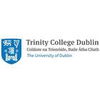
Trinity College Dublin, the University of Dublin
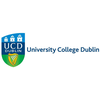
University College Dublin
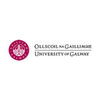
University of Galway
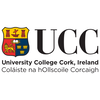
University College Cork

Dublin City University
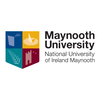
Maynooth University
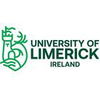




Lorem ipsum dolor sit ametconse ctetur adipisicing elitvolup tatem error sit qui dolorem facilis.